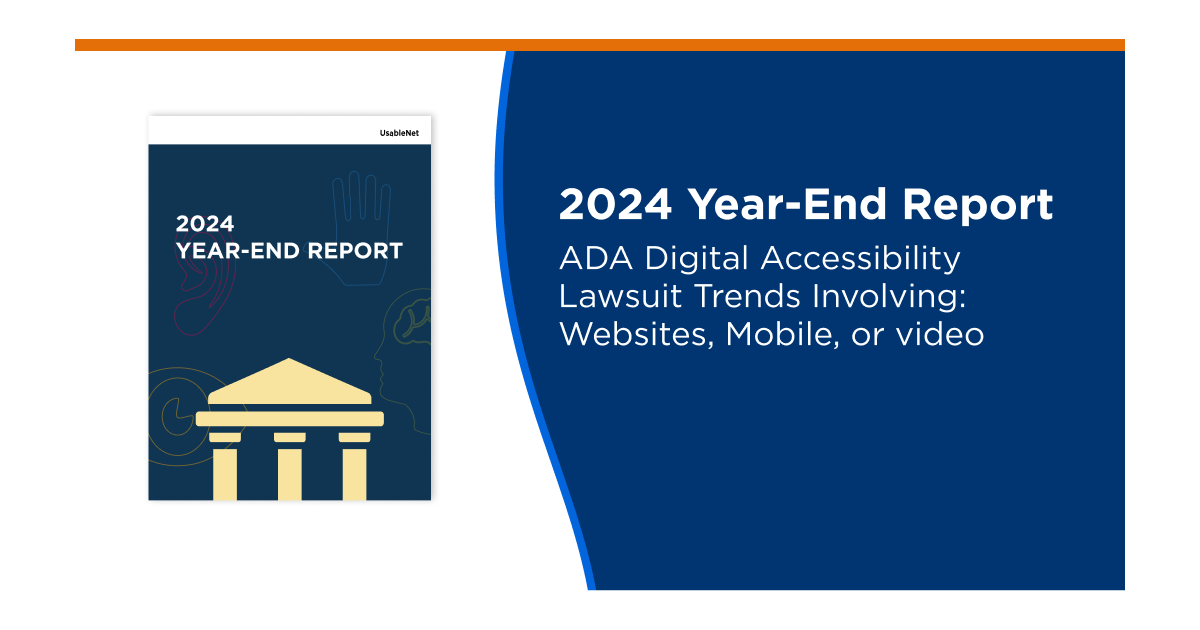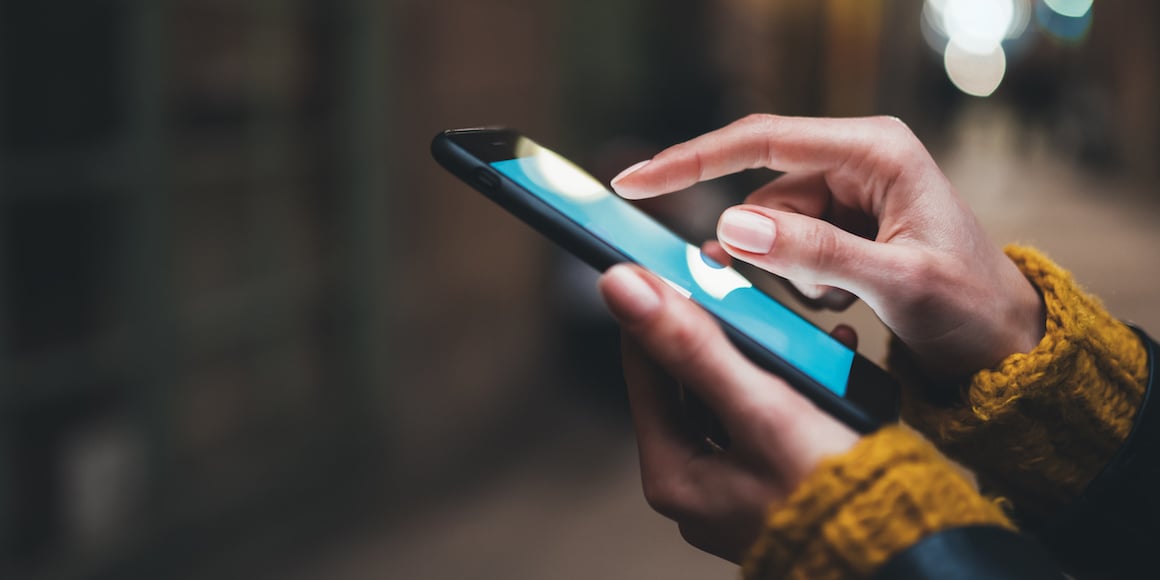In 2019 UsableNet found that federally filed ADA suits occurred at the rate of one suit for every working hour. With the ongoing pandemic impacting all aspects of American life, our team expected to see a dip in the rate of these lawsuits. Surprisingly, we have not.
Our data suggests businesses may be feeling impact in more ways than are being widely reported. Not only are companies dealing with substantial economic loss, but they may be receiving more ADA Website lawsuits and claim letters.
ADA website lawsuits in 2020 have kept with pace with 2019 and with 2018 when these lawsuit rate began its meteoric rise, as we mentioned in previous blog posts.
Last week, a legal alert issued by Gibbons, PC provided some insight into this trend.
“one might expect that these economic and logistical burdens would result in a relaxation of the financial and injunctive demands made on distressed companies in these cases, we are already seeing some plaintiffs taking the opposite track – enhancing their demands by arguing an even greater need for accessible website access for the disabled public who find themselves more reliant than ever on internet-based services.”
Let’s be clear, we’re not questioning the need for accessibility for people with disabilities. The disability community is a large and varied population. Despite laws and protections in place, this community often goes under-served. Coronavirus is arguably making life harder in ways, such as:
- In education, schools and universities are adopting online learning platforms that may not fully accommodate the needs of students with disabilities or worse, ignore them. Chris Danielson of the National Federation of the Blind explained to WBUR in an interview, “When there is very little planning time involved and a quick ramp up time, we’re very concerned that blind students are going to struggle," said Chris Danielsen with the National Federation of the Blind.
- Fear of exclusion from medical treatment, Ruthie-Marie Beckwith, executive director of TASH: Disability Advocacy Organization expressed this concern to the Huffington Post, saying, “we’re concerned about the protocols that hospitals have as it relates to triage — who gets treatment and doesn’t get treatment.”
- Work accommodations, remote work has become the standard across industries that had never offered it. Twitter is full of with frustrated employees who sought the same accommodations for disabilities before quarantine but were denied. Data from research firm The Standard, supports this; only 40% of human resources managers surveyed felt confident in the way their company handles disability accommodations.
- Limited access to direct support professionals. During quarantine, members of the disability community, may be left without their direct support professionals. “Many states issuing stay-home or shelter-in-place orders aren’t including direct support professionals as ‘essential workers,’ Shannon McCracken vice president for government relations at ANCOR told Huffington Post.
The concern about how the disability community will fare during the Coronavirus pandemic is real and being fought on the front-lines by advocates. But this may not be on top of mind for plaintiff lawyers filing hundreds of lawsuits in month against struggling retailers who lack fully accessible native apps or other businesses that used a third-party platform to create their website.
According to the legal alert issued by Gibbons PC, “it appears that ever-enterprising plaintiffs’ attorneys are taking advantage of this crisis to press these already ubiquitous claims even further.”
To view all alerts in Gibbons "The Coronavirus Pandemic and Your Business: How We Can Help" Series, click here.
For retail and restaurants, it gets worse.
Industries that are historically most likely to receive an ADA Website or App lawsuit are among those hit hardest by the downturn brought by Coronavirus, retail and hospitality.
Restaurants during the epidemic have had to close their doors or switch to take-out only, by order of local governments hoping to prevent the spread of the virus. Despite this, restaurants have continued to receive ADA Website lawsuits.
Historically, 60% of the top 100 restaurant chains have received ADA Website lawsuits from 2017-2019. So while the lawsuits are nothing new to this industry, if they have not yet done the work of accessibility, these lawsuits may compound other substantial business losses.
The future
In late 2019, UsableNet made our predictions for 2020 and beyond. There was no way at the time to predict where we are today. But one of our main themes was the hope that awareness of inclusion online and accessibility would grow, we still hope this to be true.
As far as ADA claims being filed at the same rate and against the most vulnerable industries during this time, we’ll continue to monitor the data.
If you think your Website may be making your business more vulnerable to these suits, there are a few things you can do right now. Being proactive in the best way to minimize your risk.
Start by running a free automated test to see where you stand. UsableNet has a free, community version of our AQA tool that you can try here.
Consider posting an Accessibility Statement as a way of telling your customers that you are figuring it out. You can speak with legal counsel to help with this and we have written a blog on this too.
For more ways to save on the costs of making your Website ADA compliant, check out our blog, "4 ways to reduce ADA Compliance Costs."
USABLENET CAN HELP
There is no silver bullet to website and apps accessibility, but UsableNet has 20 years of industry experience and our experts are happy to help. Contact us we offer a free, 30-minute consultation—or read our free web and app accessibility guide to start building your own roadmap.









